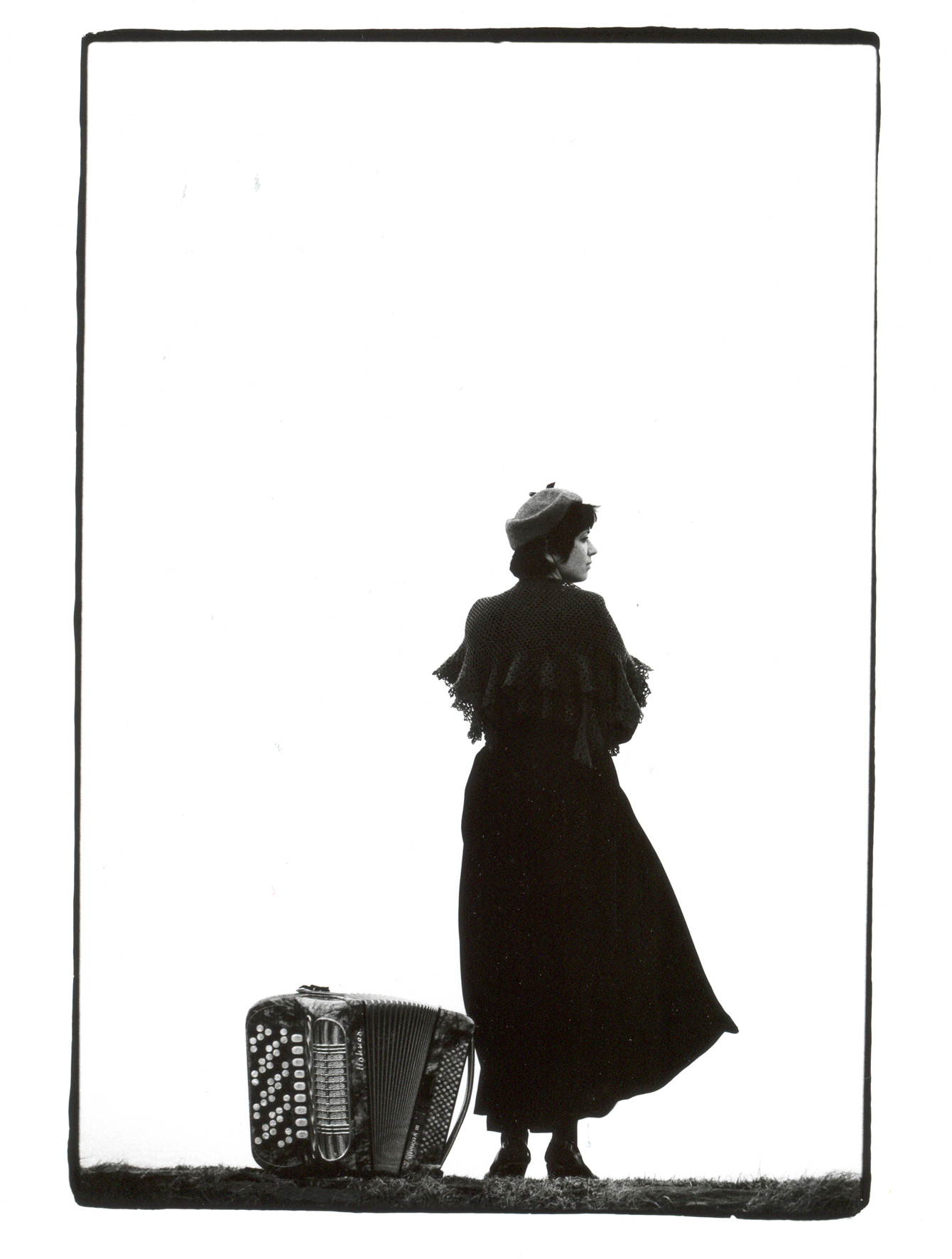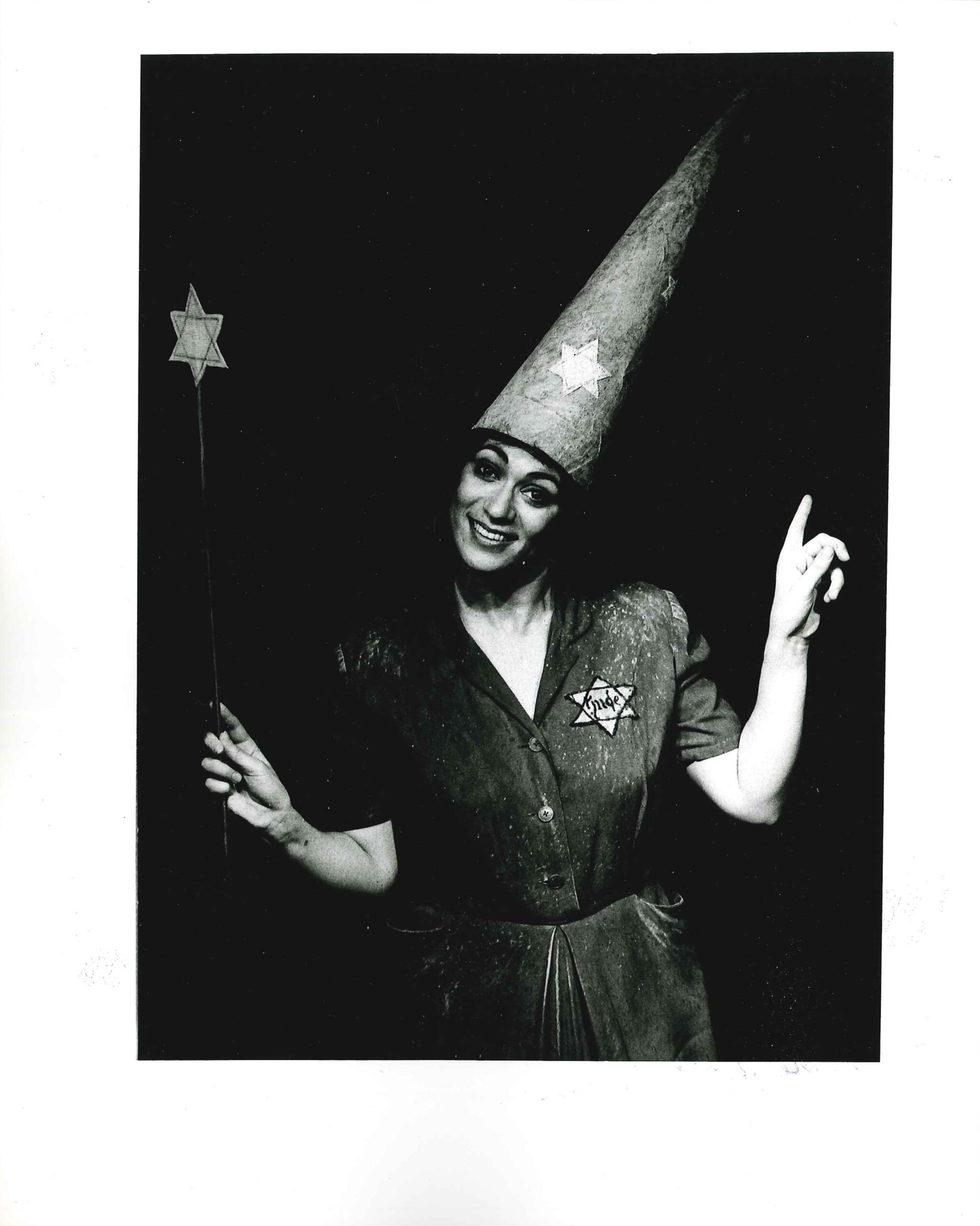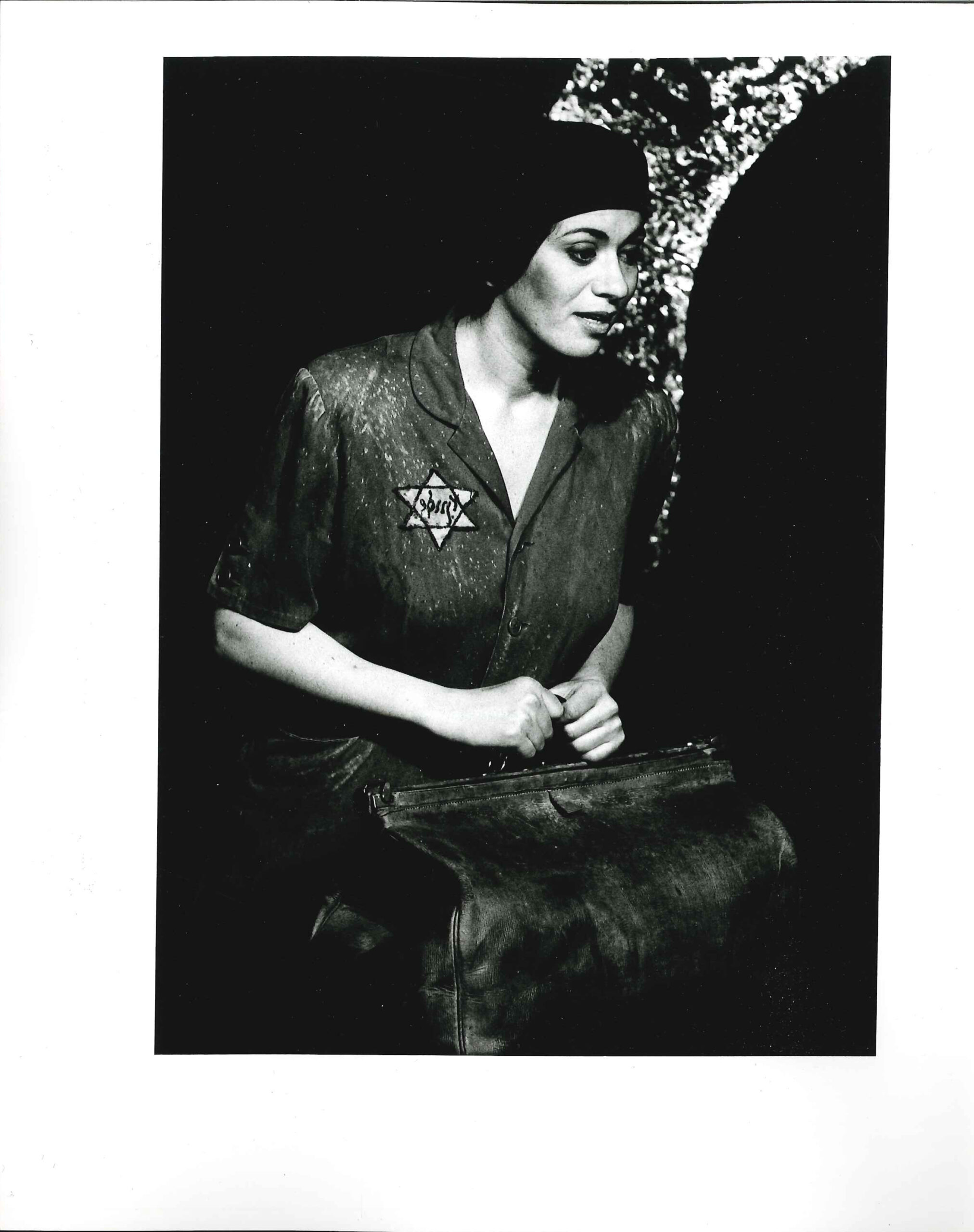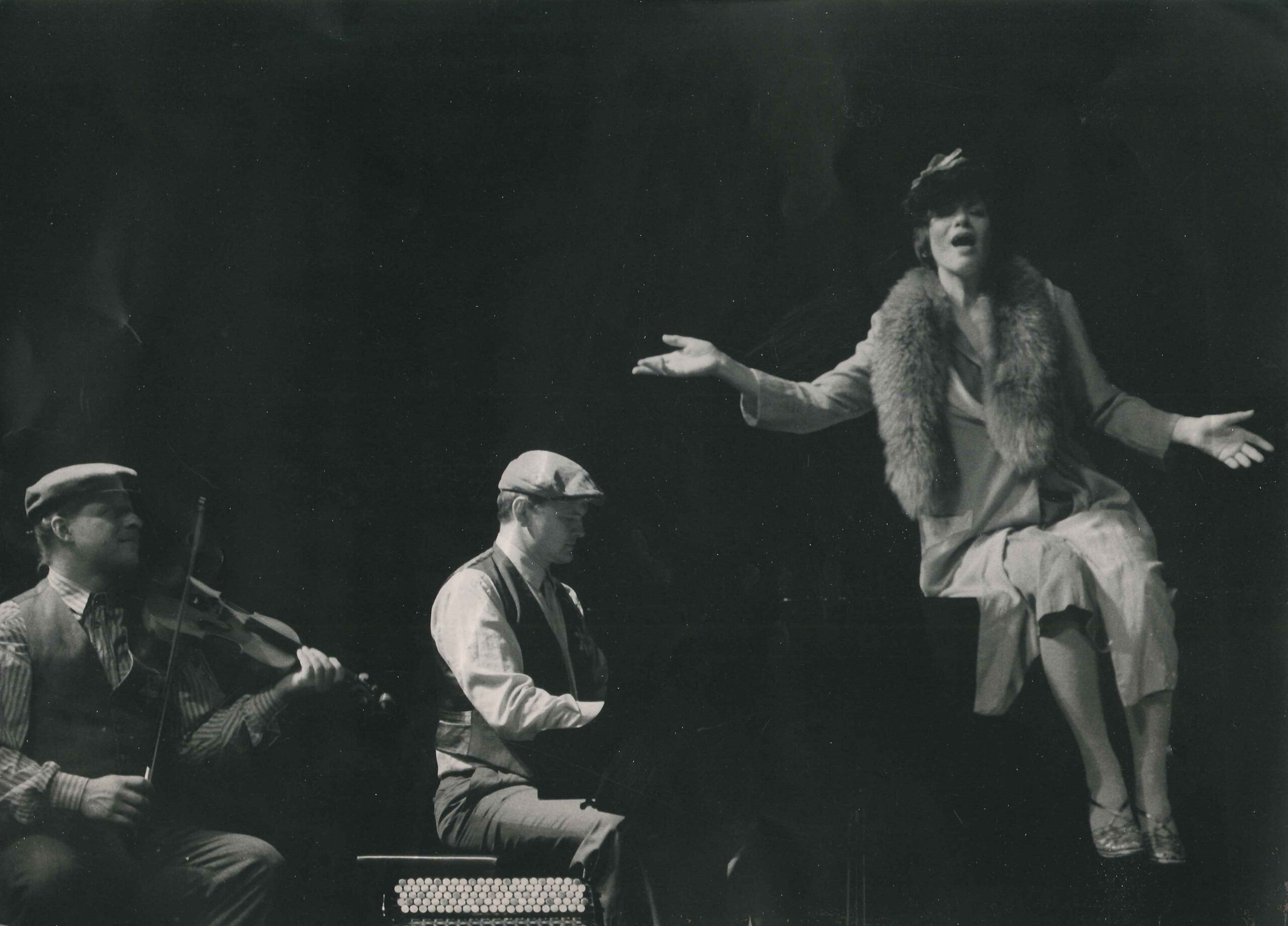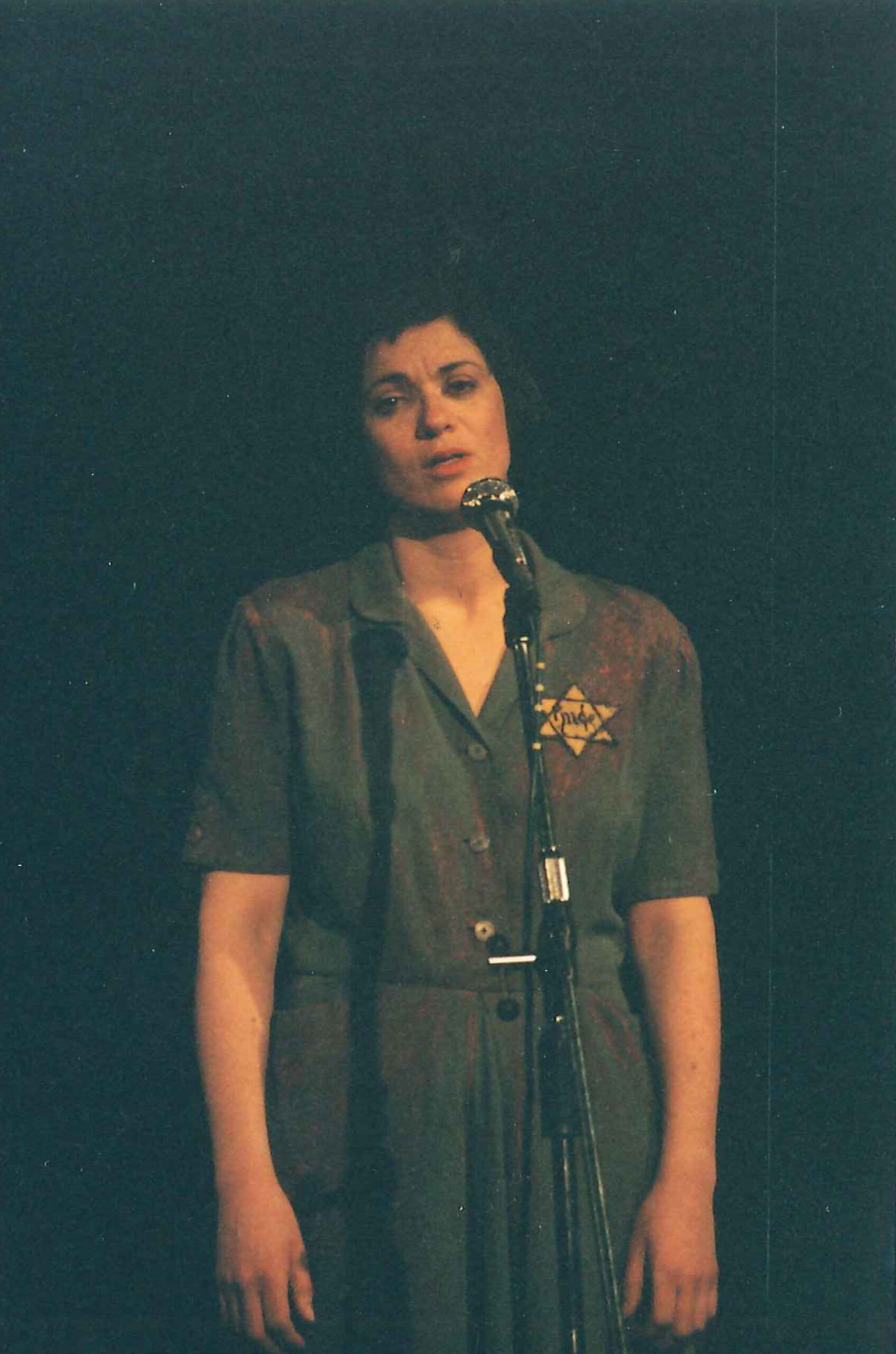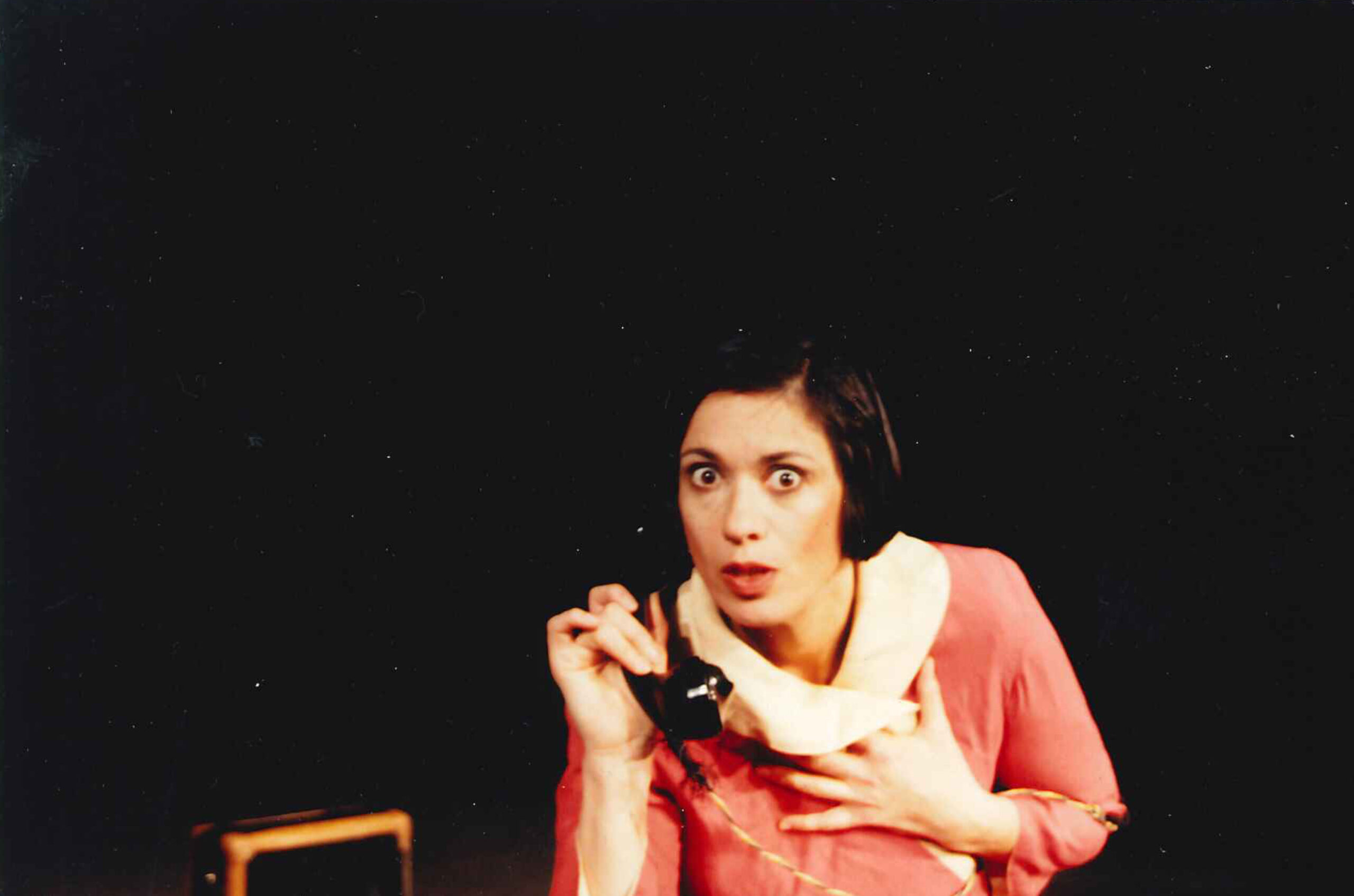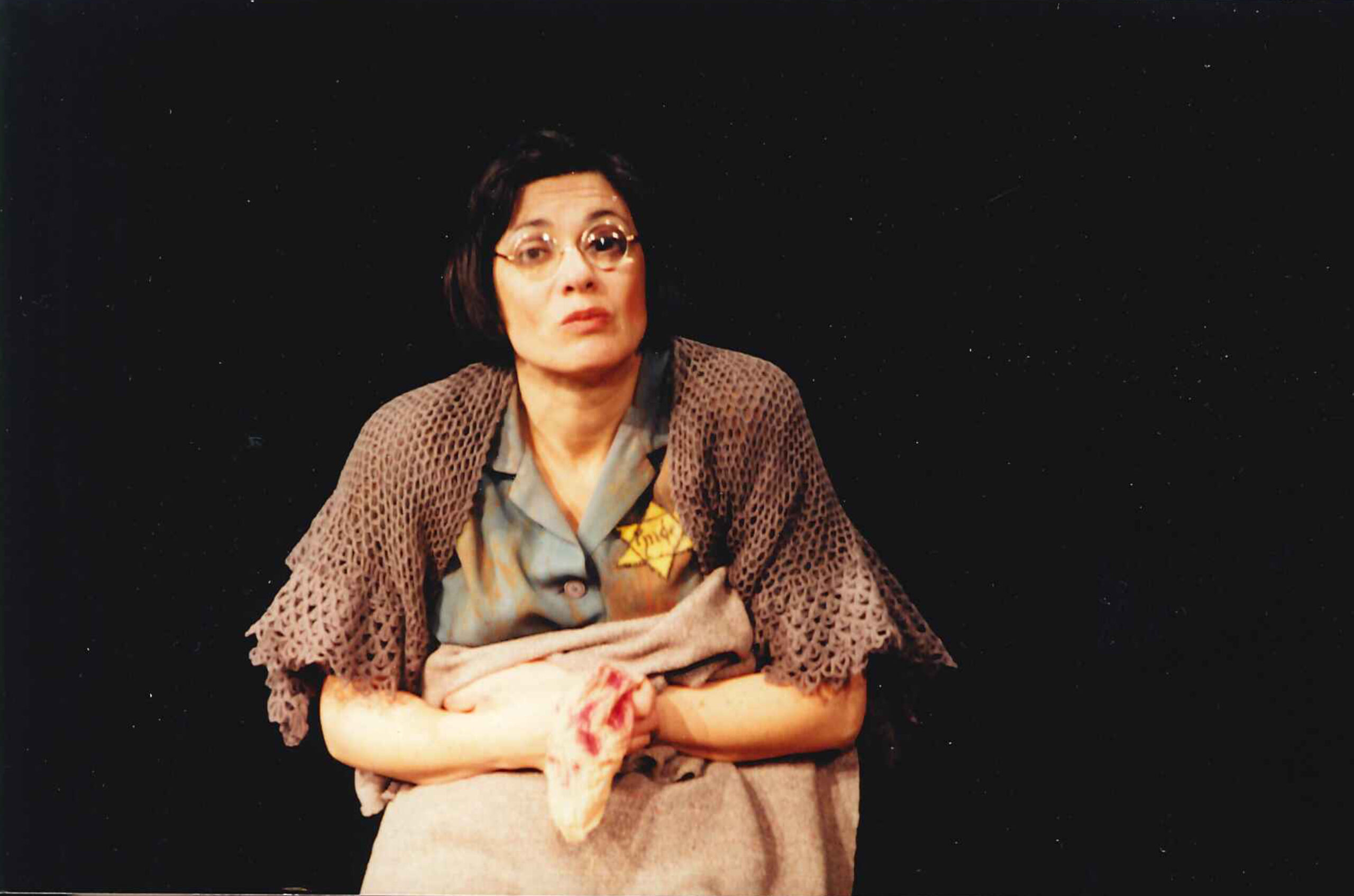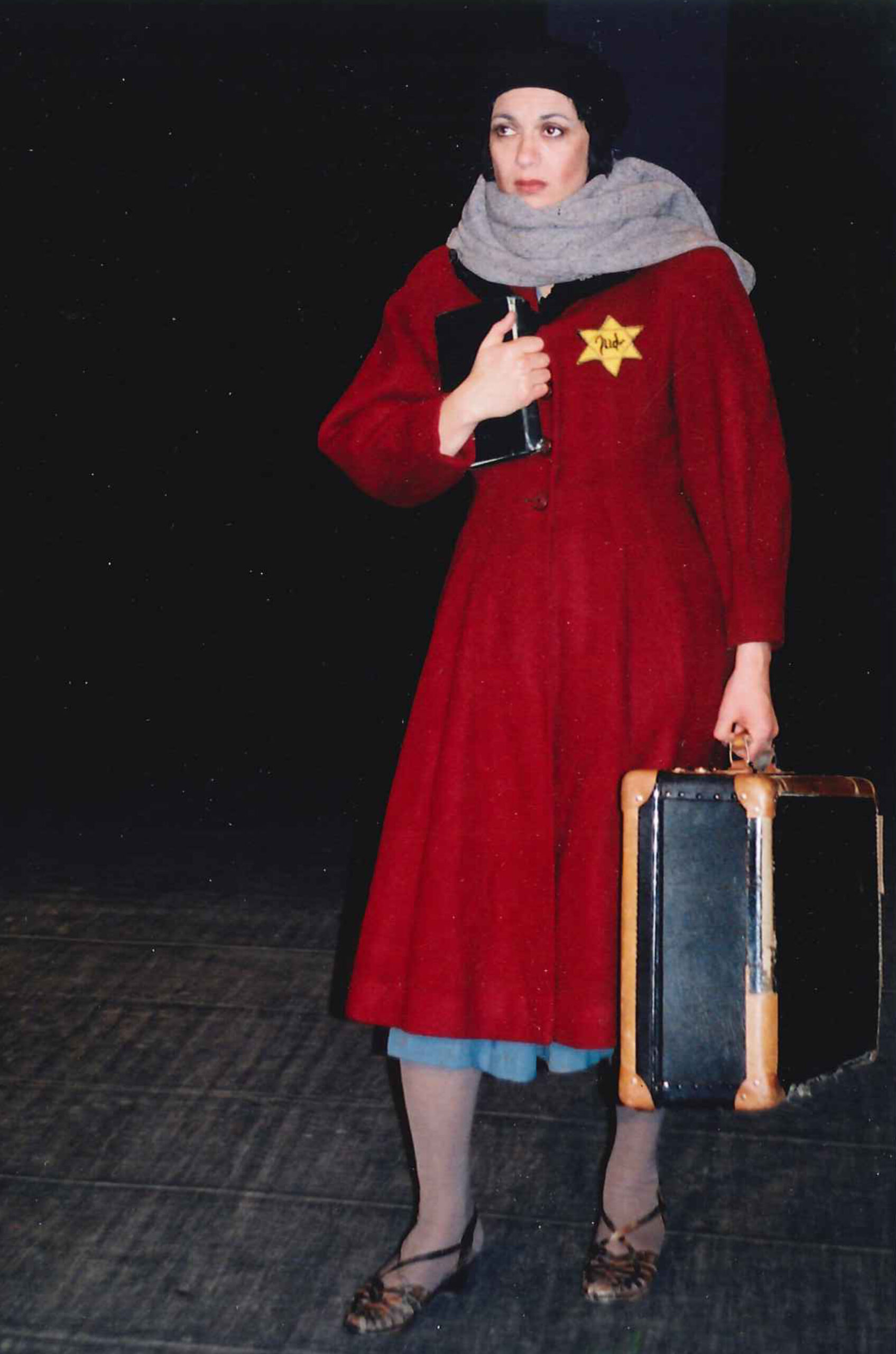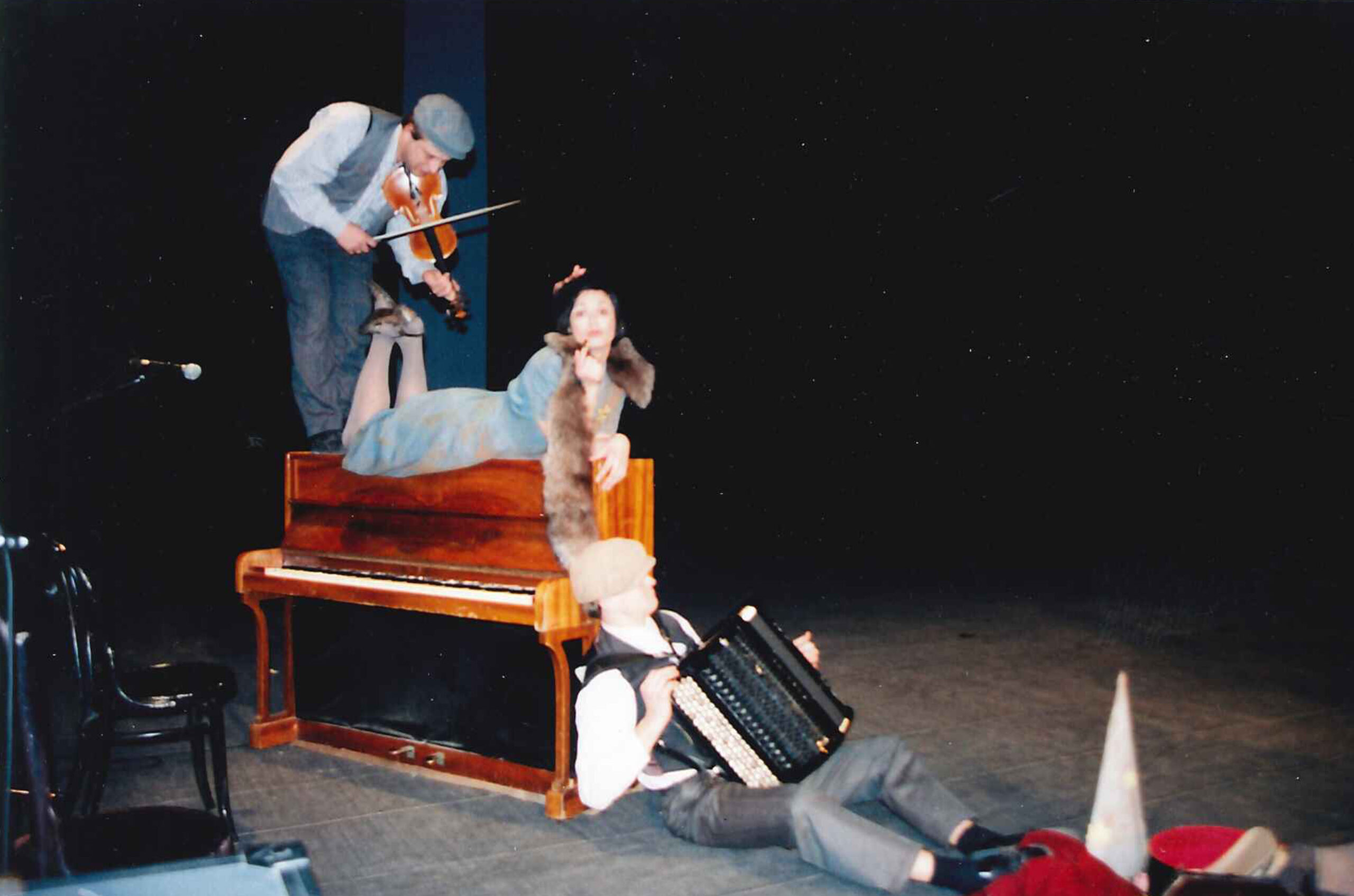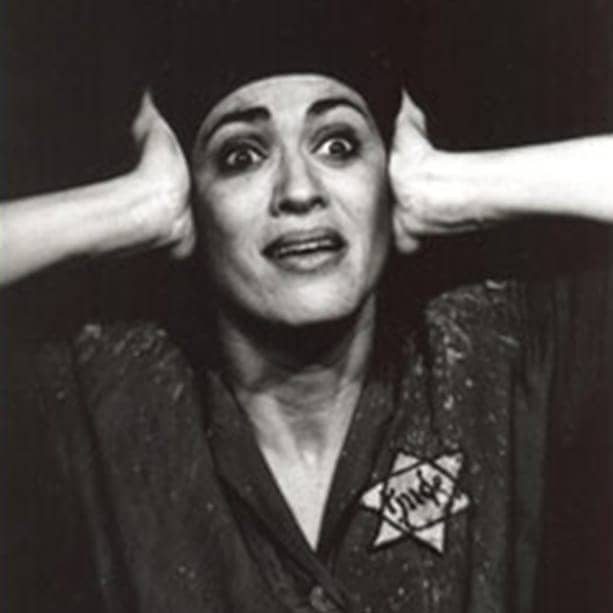
Theatre Play
Voices from Theresienstadt
by Ellen Foyn Bruun and Bente Kahan.
Directed by: Ellen Foyn Bruun
A monodrama about five women who come from different countries, are of different ages, social class and professions. The one thing they all have in common is that they are Jewish and their paths have crossed in Theresienstadt, the „paradise” ghetto. Each has a story to tell and each resolves her unique dilemma in her own, sometimes unexpected, way. All the words of the songs were mainly written in German, in the ghetto Theresienstadt/Terezin during WWII. The cabaret music was either written in the ghetto or taken from popular operettas.
Most of the words by Ilse Weber are set to music by Bente Kahan. The musical accompaniment is provided by Dariusz Swinoga and Miroslaw Kuzniak. The concert and CD are available in three versions – German, English and Norwegian.
Norwegian premiere: Oslo, 13 May, 1995 with Bente Kahan and Thor Haukness.
German premiere: Dresden, Nov. 1995 with Bente Kahan, Dariusz Swinoga and Miroslaw Kuzniak.
English premiere: London, 5 June, 1997 with the same ensemble as above.
German premiere with Theater Schachar in Hamburg, using their own ensemble: June 2004
Premiered in Poland with Bente Kahan as the director and five Polish actresses at the culture center „Firley” in Wroclaw, June 2005. Shown numerous times in the White Stork Synagogue for youth in the Polish region Lower Silesia between 2005-2010.
Bente Kahan has guested many prestigious stages in Europe with this performance as well as showing it at Yad Vashem Museum in Jerusalem and at the US Holocaust Memorial Museum in Washington D.C.
Extract from reviews:
„…The beauty in which the grief is expressed transforms into art and, at the same time, makes the accusation. One listens with a pounding heart.”
Die Zeit, 1997
„…powerful and important… „
The Independent, London, 1997
„An astonishing from the gut performance.”
Time Out, London, 1997
„It is a form of witness that commands admiration.”
Jewish Chronicle, London, 1997
„…marvelous performance…”
Jerusalem Yad Vashem Quarterly Magazine, vol 16, 1999
„…stunning artistry……magnificent monodrama…”
The Jewish Press Magazine, USA, 1999
„An extraordinary performer.”
Leverkusener Anzeiger, Germany, 2001
„…it is as though she lives there, experiences the hope and the inhabitants’ fear of death – so intense is her acting….an outstanding performance.”
Rheinische Post, Germany, 2001
„enduringly impressive”
Die Tageszeit, Berlin, Germany, 1996
„A human voice in the midst of the inhuman. Song and art in the midst of hell.”
Politiken, Copenhagen, 1995
„One-Woman Cabaret Tells a Powerful Shoa Tale”
(In) a powerful Shoa tale, Kahan realized the agonies of each character (in the play) with emotional intensity and vocal eloquence. . .Audience members left the theater silently, in somber thought aft3er a powerfully voiced 'Sh’ma Yisrael’ brought the stirring, long-to-be-remembered performance to an end.
NewJersey Jewish News, 1 November 2001
Letter on „Voices from Theresienstadt”:
„Dear Bente: I want to personally thank you for being part of our Sunday Scholar Series this season. Words cannot express the impact of your stirring presentation on the audience; the weighty silence at the end of the evening was indicative tht the audience was deeply moved. We were so pleased to offer our community this powerful presentation which was truly a legacy of Ilse Weber and the millions of innoncent victims of this tragic period in world history. Maya their memories be for a blessing and may you continue to go from strength to strength! With best wishes, Sincerely,
M. Bruce Lustig Rabbi Washington Hebrew Congregation, November 19 2000
„Fluctuations Between Pride and Naked Fear”
„Applause for an outstanding performance by Bente Kahan, who can sing and act, and transform into different characters and change emotions at a speed that out-races the audience’s ability to respond accordingly. . .Bente Kahan swept her audience into these emotional fluctuations. . .
Rheinische Post, 13 November 2001
„Ambiguity from Theresienstadt”
„The transitions between (the five characters depicted by Kahan in the play) are flawless. . . with only a minimum of props she tells the story of five women who lived in Theresienstadt from 1942 until 1944. Bente Kahan portrays life in the twilight zone. . .The tears in her eyes remain as she puts on a smile and goes into a black cabaret dance number The plays ends with „The Terezin March”. Bente Kahan stands calmly and disconcerted on the stage and the ensuing silence is an invitation to the audience to reflect, especially at the this time, around the 9th of November.”
WZ, 13 November 2001
„Bestial, Absurd and Without Hope”
„Bente Kahan gave us an insight into German history which moved the audience more than pictures or books on the Holocaust.. .Throught a deliberate ambiguity between her acting and the content of (the songs, Bente Kahan) encourages the audience to reflect (on the events that took place in Terezin).”
Neue Westfălische 13 November 2001
„Tomorrow They Are Coming to Get Us”
„Bente Kahan’s dramatic concert also pays homage to such artists as Ilse Weber, Leo Strauss, Karel Svenk and Theodor Otto Beer, whose texts were written in the ghetto. Apart from Giora Feidman, Bente Kahan is the most famous interpreter of Jewish music and Jewish drama, and to which she has even added new music. . . As deafeningly silent as the clearly shaken audience was during the 70-minutelong play, all the louder the applause given Bente Kahan. . .for the impressive time and spiritual voyal on which she took her Lőhner audience.”
Lőhner Zeitung, 13 November 2001
„Rage, Courage and the Lament of Despair”
„. . . an extraordinary performer encountered the audience attending the 'Special Evening’. Bente Kahan, actor, singer and composer from Norway. . . (presented) Voices from Theresienstadt, an oppressive collage (composed of) songs and words. . . Five voices from Europe, whom Kahan depicts in highly different ways. Props are minimalist. And the rest – and what a rest it is – consists of modulation, impressively powerful facial expressios, language, movement. Courage. Rage. Despair, and above all, fear seem terrifyingly genuine. The songs in the solo scenes enhance the mood. . .Bente Kahan seduces her audience with passionate intensity. The fact that she herself is Jewish makes her especially entitled to keep the „Voices of Theresienstadt” alive was confirmed by the lengthy applause given her by the audience.”
Leverkusener Anzeiger, 12 November 2001
„False Hope: 'Everything Is a Big Mistake!’”
„Bente Kahan does not merely act in „Voices from Theresienstadt”, it is as though she lives there, experiences the hope and the inhabitants’ fear of death – so intense is her acting. The word 'gripping’ has become unfashionable, (but in this case) it must be possible to write 'gripping’.”
Rheinische Post, 10 November 2001
„Voices from Theresienstadt – Bringing Show Victims’ Poetry to Life”
„The presentation of powerful works such as Voices from Theresienstadt help assure a collective determination never to permit such diaboloical convergences to take hold ever again. . . Kahan . . .and Foyn Bruun. . .together have created a miracle in Voices from Theresienstadt. . .Using the characters (in the play), Kahan gives us a cross-section of Theresienstadt’s national, cultural and religious makeup. . .Kahan and her associates have done a remarkable job. . .Kahan deserves congratulations; through her vision and commitment, Ilse Weber’s work and memory have been resurrected.” Barbara Wind, poet and freelance writer.”
New Jersey Jewish News, Metro West, February 17 2000
„The young woman walked on stage of Yad Vashem’s auditorium with suitcase in hand and within minutes the stage was transformed into the new arrivals, swaggering bureaucrats and an atmosphere of frenzy and illusion that had characterized it. With stunning artistry, Bente Kahan switched from one portrayal to the other, the transformation from one personality to the other taking place right before our eyes.. . the underlying tension and growing panic Ms. Kahan communicated with her every move, and every song, gripped the audience with unmistakable foretaste as to the approaching, ultimate doom.. Bente Kahan, a Norwegian actress, musician and playwright, with her collaborator Ellen Foyn Bruun, composed this magnificent monodrama from the fabric of songs originally written in the Theresienstadt ghetto.”
By Professor Livia Bitton Jackson The Jewish Press Magazine, Friday, December 10 1999
„. . .Her impressive vocal range, Kahan, with strong accompaniment from Polish violinist Miroslaw Kuzniak and accordionist Dariusz Swinoga staged an evocative recreation. She evoked. . . the cabaret ambience and striking musical life that the Jews imprisoned in Theresienstadt to keep going. . .With a minimum of props – a hat here, a glove there – she sharply portrayed the dreams and nightmares – that dominated the (lives of the) prisoners of the 'snazziest ghetto in the world. . .’ Kahan smoothly moved through the songs (recreating a) cross-section of victims and stoic heroes. . .Bente Kahan, through her own very different and radiant artistry has restored the surviving memories of Theresienstadt’s . . . once-vibrant Jewish life.”
The Jewish Advocate, Newton, MA. 30 January 1998
„. . . versatile performance. . . .(to) the accompaniment of very accomplished musicians. . .what makes Kahan’s portrayal of Theresienstadt so powerful is the way she avoids making her characters into heroes. . .Pieces like Voices from Theresienstadt play a powerful and important part in understanding life in the 'As If’ town.”
The Independent, 10 June 1997
„. . .Kahan gives an astonishing from-the-gut performance as five women fighting to survive the dehumanizing horrors of Theresienstadt. . .Kahan’s raw, unchecked pain is no less than these must-be-told atrocities deserve.”
Time Out, 10 June 1997
„A strong performance from a Norwegian actress adds intensity to an, at times, harrowing study of the Holocaust. . .It is a form of witness that commands admiration.”
Jewish Chronicle, 13 June 1997
„. . . . an intelligent, sincere and necessarily serious attempt to keep the spirit of the Theresienstadt women alive. . . Cleverly, the music is a storytelling device which. . . .showcases both the depth and despair of the human spirit. . .”
The Stage, 18 June 1997
„an extraordinary evocation of hope in the face of catastrophe. . .It’s not often you get the chance to see something this watchable and moving on the fringe, and so enthralling is Kahan’s performance. . .”
Ham & High, 13 June 1997
„With only a few props. . .she grips our attention, never stooping to pathos. The transitions from a hopeful will to survive to the reality of mass murder. . . makes the program enduringly impressive.”
Die Tageszeit, Berlin 21 November 1996
„Bente Kahan serves us an unadulterated truth in a play filled with hope, connivance, humor, laughter mixed with tears. (Her performance) is thrilling and deserves the attention of Berlin theatre-goers.”
Tagesspiegel, Berlin 21 November 1996
On the performance of „Voices”at the Sachsenhausen Memorial:
„The Norwegian actress is impressively successful in capturing the pain embedded in the texts (of the songs). . .(her performance is as moving) as are her heartfelt tears which flow down her face as she performs the work.”
Berliner Morgenpost, 18 November 1996
„. . .a moving evening of songs. . . one could have heard a pin drop when Bente Kahan sings in Voices from Theresienstadt.”
Die Welt, Berlin 21 November 1996
„Bente Kahan has the intimacy, zeal and the voice to carry the story line. In monologue and dialogue, which are intricately related, she communicates the sense of constant hope and vulernarbility.”
Berlingske Tidende, Copenhagen August 1995
„The form and content the Norwegian actress gives the five women come across as an homage to all those who tried to go on living, as best they could. We don’t only hear „Voices from Theresienstadt”, but also see characters who are complete and vital.
Jyllandsposten, August 1995
„With a voice filled with horror and beauty and a body language reminiscent of the expressive conventions of the silent movie, this is not theatre for those with a weak heart. The performance is never reduced to „Shoa – the way I would have seen it had I been there”, because Bente Kahan has an impressive ability to set limits and create distance. She. . . moves on the edge of a cliff, but never takes that last step. Her acting is passionate, but never sentimental.”
Morgenbladet, Oslo May 1995
„(Kahan) is strong and clear in expression, and sings as few others. „Voices from Theresienstadt” is necessarily a tragic story, filled with sorrow, pain and anger, but also with humor and irony. Her performance is forceful. …”
VG, Oslo May 1995
